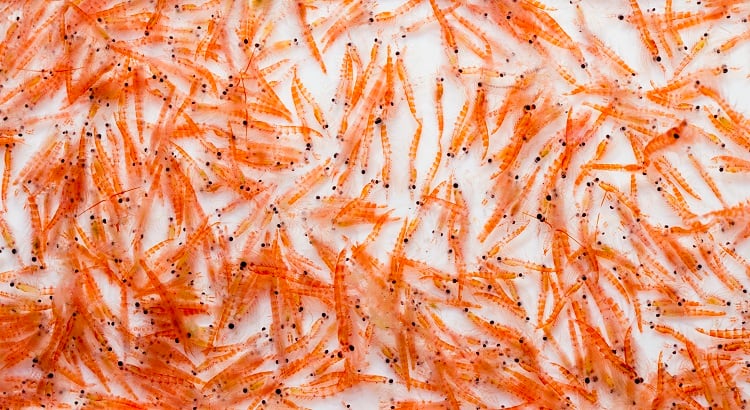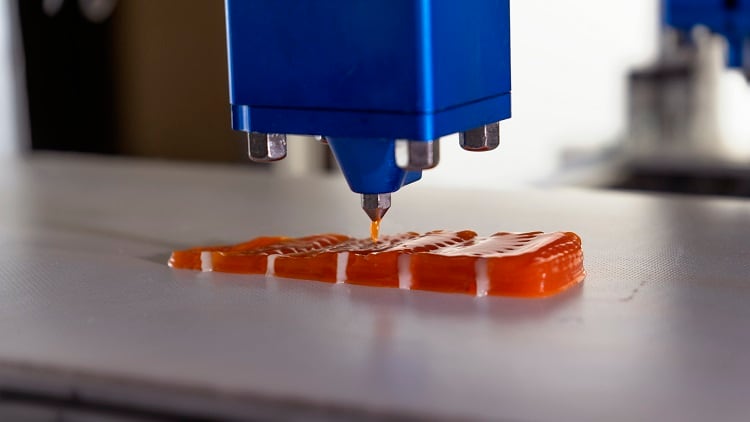Despite consumer interest in alternative proteins, animal-based products remain key to average consumer diets across Europe.
The new Like-A-Pro project, funded by the European Union, is working to increase uptake of alternative proteins by shifting the category away from ‘niche’ and into the ‘mainstream’.
Alt protein hindered by R&D challenges
At the EU level, the Commission sees the growing trend for plant-based proteins as the ‘perfect ground’ for the dietary shift towards sustainable and healthy nutrition and food systems, in line with the ambitions of the EU Green Deal, Farm to Fork Strategy, and EU climate goals.
Within Member States, policymakers are also working to encourage greater uptake. In Denmark, for example, its 2021 revamped dietary guidelines recommends citizens consumer more legumes and vegetables and less meat. Just last month, Spain reworked its dietary guidelines to recommend a maximum three portions of meat per week and a greater intake of ‘foods of plant origin’ as part of a healthy and sustainable diet.
However, as animal-based proteins still contribute around 67% of consumers’ total protein uptake in Europe, more work is required.

According to Spain’s Association for Research, Development, and Innovation of the Agri-Food Sector (AIDISA), which is coordinating the Like-A-Pro project, alternative protein mainstreaming is hindered by challenges at the product development stage, resulting in low availability and accessibility of acceptable products.
“Added to this is the fact that many alternative protein products are simply not attractive enough to consumers due to unbalanced nutritional profile, off-flavours, and unpleasant textures in the final product.”
A trans-disciplinary consortium
To make a protein dietary shift possible, AIDISA – together with 42 companies across 17 EU countries – argue the food industry must focus on diversifying alternative protein sources and develop new, appealing products to meet consumer demands in both wider choice and product quality.
This is the key objective of the Like-A-Pro project, which aims to facilitate sustainable and healthy diets by mainstreaming alternative proteins and products for everyone (from children to elderly, vulnerable groups), everywhere (across urban, peri-urban, and rural areas in Europe).
To achieve this, key representatives along the alternative protein value chain – from growers, producers to cooks, retailers, consumers, and researchers – will work together in a trans-disciplinary consortium.

Focus on improving European food environments towards fostering alternative protein consumption centre around finding practical solutions in collaboration with consumers, within 11 living labs and four real life food environments.
The four-year Like-A-Pro project, which kick-started 1 November 2022, has been allocated €13.9m funding from the EU.
Which proteins from which companies?
To ensure a diversified alternative protein offering, the project will see 16 new alternative protein products developed from seven sustainable, healthy, and novel sources.
Participating companies include Dutch insect start-up Ÿnsect (formerly Protifarm) which is developing ingredients for food products – such as cereal bars, pasta, meat analogues and bakery products – from the lesser mealworm (Alphitobius diaperinus). Earlier this year, the lesser mealworm became the fourth insect to receive a positive assessment by the European Food Safety Authority (EFSA) for human consumption.
Other small creepy crawlies are being investigated by the Like-A-Pro project for alternative protein product development. Krill – which is a member of the crustacean order, rather than the insect – contains a high concentration of essential amino acids. Norwegian start-up Rimfrost – a beneficiary of the EU-funded project – is developing krill oil for omega-3 products as well as a krill powder made up of omega 3 phospholipids, peptides and protein.
FlowFood is another Norwegian participant. The company is using fava beans to develop meat and fish alternative products. FlowFood’s current portfolio boasts plant-based alternatives to mince, burgers, nuggets, and meatballs.

Austrian-based Revo Foods is developing 3D-printed, plant-based seafood alternatives from ingredients including pea protein, algae extracts, plant oil and citrus fibres. The start-up recently started exploring the mycoprotein space as well via a tie-up with Mycorena. The research collaboration will explore the fungi-derived ingredient’s potential in vegan seafood whole cuts.
Belgian operation Calidris Bio is also partaking in the Like-A-Pro consortium. The biotech company makes use of microorganisms that can transform unique substrates into biomass with a high protein content. The resulting ‘microbial protein’ – developed as a substitute for fishmeal and soymeal – contains amino acids, vitamins, prebiotics, and specialty fatty acids which the company says makes an ‘excellent’ feed for livestock, aquaculture, and pets.
Israeli start-up Kinoko-Tech is another funding beneficiary. The company is producing new alternative protein products from fungal mycelium growing on legumes and grains via a solid-state fermentation process. After between four to eight days of growing, the raw material – composed of both the fungi and the legumes mixture – is ready to be harvested, cooked, and eaten.
The full list of participants, ranging from companies to research institutions and consumer organisations, is available here.




